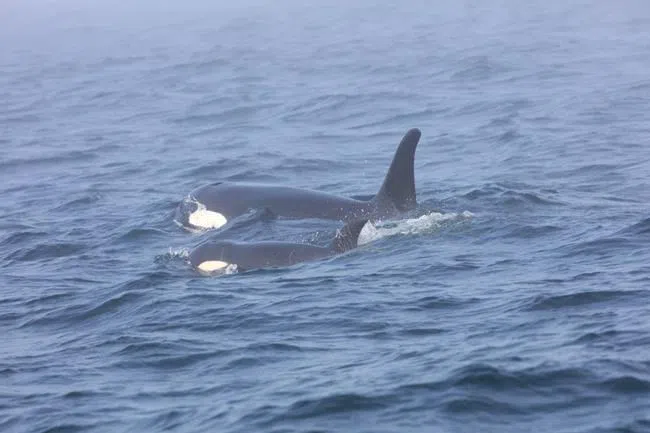
Endangered orca that sparked international rescue plan spotted in B.C. waters
VANCOUVER — An emaciated and endangered killer whale that scientists feared could be dead has been spotted swimming in the waters off Vancouver Island.
Paul Cottrell of Fisheries and Oceans Canada says a federal research team saw J50 Tuesday afternoon near Port Renfrew, B.C., but conditions were so foggy that they couldn’t assess her condition.
The young female orca has sparked an international rescue effort by Canadian and American scientists who have developed a novel plan to feed her salmon medicated with antibiotics.
J50 is one of only 75 Southern resident killer whales that swim the coastal waters between British Columbia to California.
